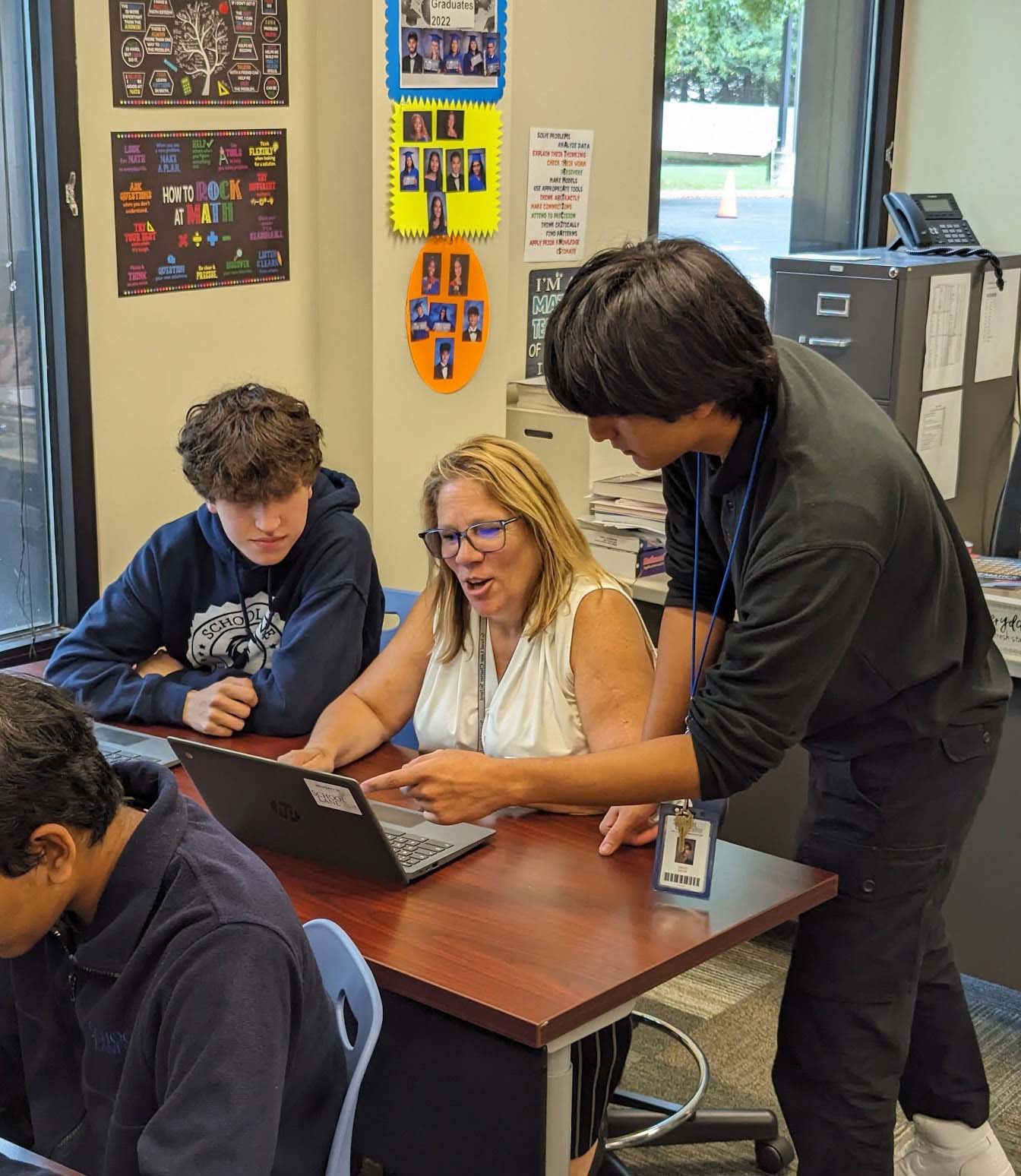11-12 Curriculum: IB Diploma Program
The International Baccalaureate (IB) Diploma Program (DP) provides students in grades 11-12 with a rigorous and globally recognized curriculum that prepares them for college and beyond. Spanning two years, the DP challenges students to develop analytical thinking, advanced writing skills, and a deeper understanding of the world through six subject groups and the DP Core.
Key Features
Comprehensive Curriculum: Students study six subject groups alongside the DP Core, which includes Theory of Knowledge (TOK), Creativity, Activity, Service (CAS), and the Extended Essay (EE).
Example: TOK encourages students to explore the nature of knowledge, while the EE challenges them to write in-depth research essays comparable to college-level work.
Rigorous Assessments: Students complete both internal assessments graded by teachers and external assessments graded by IB examiners, culminating in a scoring system where 24 points are required for the full diploma.
Example: Higher Level (HL) courses provide in-depth subject expertise and significant preparation for college admissions.
College Preparation: The DP equips students with research, time management, and communication skills, fostering the ability to think critically and engage in complex academic concepts.
Global Perspective: Through interdisciplinary studies and service projects, students learn to connect their academic work with real-world applications and global challenges.


Core Academic Subjects
The DP curriculum allows students to specialize in subjects they are passionate about while gaining a well-rounded education.
Language and Literature: In-depth analysis of texts, writing, and oral communication.
Language Acquisition: Advanced study of a second language, such as Spanish, focusing on fluency and cultural appreciation.
Individuals and Societies: Courses such as history of the Americas, psychology and business..
Sciences: Biology, chemistry, and physics courses include experimental work and research-based projects.
Mathematics: Options range from applied to theoretical courses, emphasizing problem-solving real-world connections in upper level mathematics through Calculus.
The Arts: Students can pursue visual arts, integrating creative expression with critical analysis.
Signature Events and Projects
The DP encourages students to apply their knowledge in real-world contexts, preparing them for future success.
Extended Essay (EE): A 4,000-word research project that develops advanced writing and critical thinking skills.
Creativity, Activity, Service (CAS): Students complete community-based projects that combine creative endeavors, physical activities, and volunteer work.
Theory of Knowledge (TOK): Students explore the nature of knowledge through discussions, presentations, and essays that connect their studies to broader philosophical questions.
What Sets School Lane Apart?
School Lane’s IB Diploma Program equips students with the skills, confidence, and global perspective needed to thrive in college and beyond, preparing them for a lifetime of achievement.
College Readiness: DP graduates enter college with advanced skills in research, organization, and communication, positioning them for success in higher education.
Globally Recognized Rigor: Universities highly value the DP for its consistency, challenge, and interdisciplinary approach.
Real-World Applications: Projects like CAS and TOK encourage students to connect academic learning with practical, global experiences.

